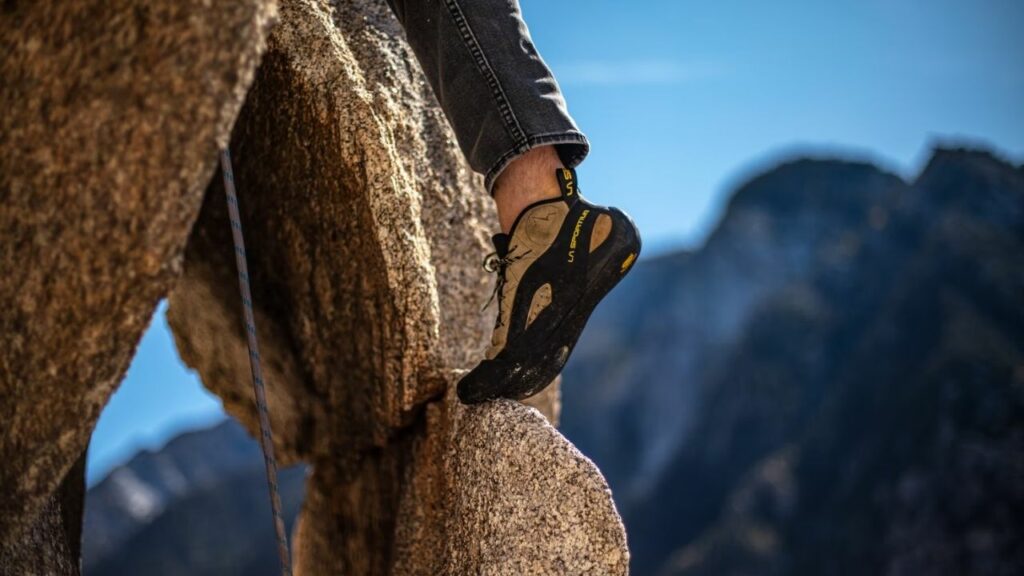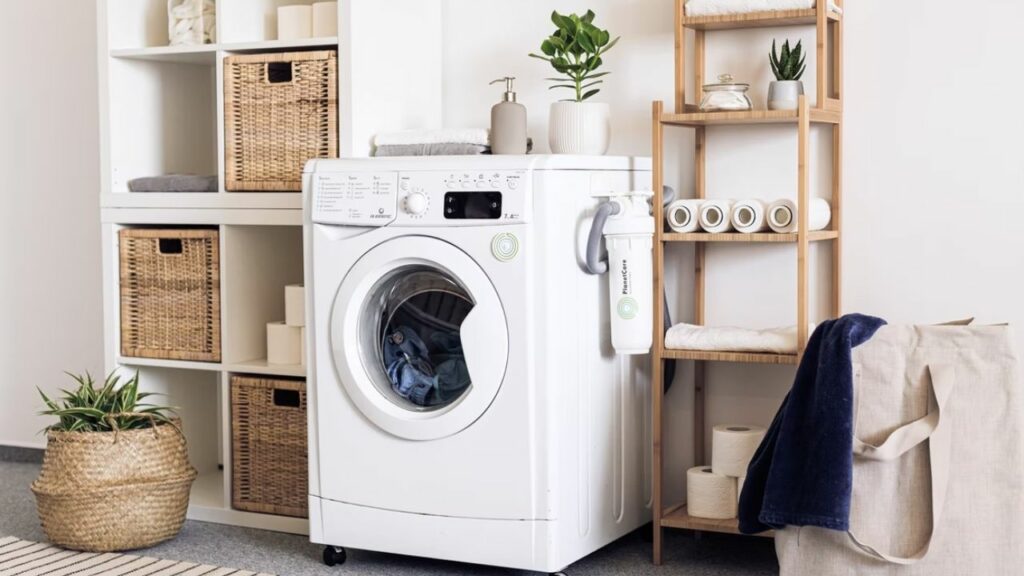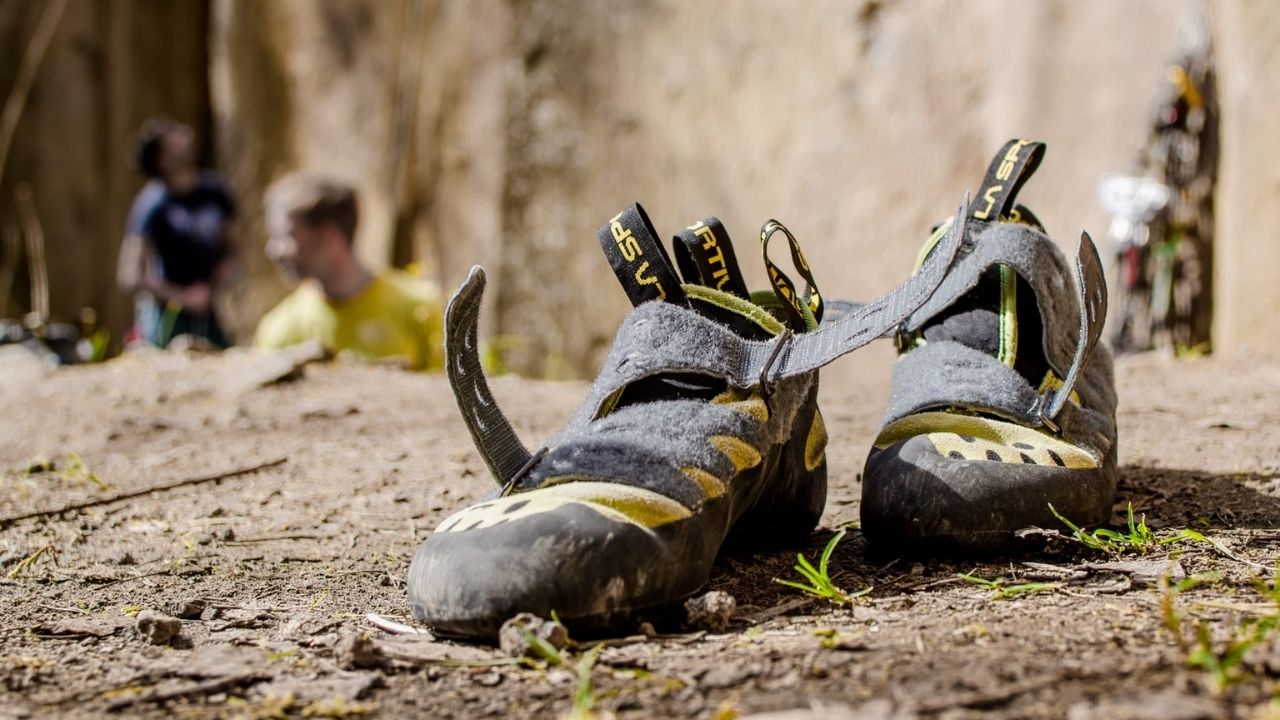Bouldering shoes are made with high-quality materials that provide grip and support. However, dirt, sweat, and bacteria can build up on the surface of your shoes, causing them to wear out faster and emit unpleasant odors.
Proper cleaning and disinfection of bouldering shoes are crucial for maintaining their quality and preventing the spread of foot fungus and bacteria. But more importantly, smelly shoes are a nightmare!
By following my quick tips, you can extend the life of your bouldering shoes, save money on replacements, and, most importantly, ensure that you are not spreading unwanted pathogens to your feet.
How to Clean Bouldering Shoes Manually
Before cleaning your bouldering shoes, you will need a few tools and materials, including:
- A soft-bristled brush or toothbrush
- A mild detergent or soap
- A clean towel or cloth
- A sink or basin with warm water
- Optional: baking soda or vinegar for tough stains
1. Remove Excess Dirt and Debris
Before cleaning, remove any excess dirt or debris from your shoes. You can use a soft brush, cloth, or even your fingers to remove any dirt, sand, or small rocks stuck on the sole or upper part of the shoe.
2. Wash Your Shoes
Fill a bucket or sink with warm water and add a small amount of mild soap or detergent. Dip the brush or cloth in the solution and gently scrub the shoes, paying particular attention to the most soiled areas. Avoid harsh chemicals or bleach, as they can damage the shoe material.
If you prefer to machine wash your bouldering shoes, check the manufacturer’s instructions for any special cleaning requirements. Machine washes them separately in cold water with mild detergent and avoids using fabric softeners or bleach.

3. Air Dry
After washing, allowing your shoes to dry naturally is crucial, rather than using a dryer or exposing them to direct sunlight. Stuff the shoes with newspaper or a dry cloth to absorb excess moisture and reshape them while drying.
Avoid placing the shoes on a heater or any heat source, as it can warp the shoe material and affect the glue holding them together.
4. Clean the Soles
The soles of bouldering shoes can become dirty and slick, affecting the grip and performance. You can use a soft brush or a special sole cleaning product to clean the soles.
Avoid using harsh chemicals or abrasives that can damage the rubber soles. After cleaning the soles, rinse them with warm water and dry them with a cloth.
5. Waterproofing
Bouldering shoes can get wet during climbing, making them susceptible to water damage and mold growth.
Therefore, it is recommended to waterproof them regularly to prevent any water damage or fungus growth. You can use a waterproofing spray or a wax-based product to protect your shoes from water and dirt.
Tips for Tough Stains
If you have tough stains or discoloration on your bouldering shoes, try using baking soda or vinegar to remove them. Here’s how:
- Mix one part baking soda or vinegar with three parts water to create a paste.
- Apply the paste to the stained area and let it sit for 15-20 minutes.
- Scrub the area gently with a soft-bristled brush or toothbrush.
- Rinse the shoes thoroughly and clean.
How to Machine Wash Bouldering Shoes
Machine-washing bouldering shoes is generally not recommended, as the agitator can damage the delicate fabric and reduce the shoes’ lifespan.
However, if you are in a rush or have tough stains that won’t come out with hand-washing, you can machine-wash your bouldering shoes using these steps:
- Remove loose dirt or debris from the shoes with a soft-bristled brush or toothbrush.
- Place the shoes in a mesh laundry bag or pillowcase to protect them from getting damaged in the washing machine.
- Add mild detergent or soap to the washing machine and set it to the gentle cycle.
- Once the cycle is complete, remove the shoes from the laundry bag and rinse them thoroughly with clean water to remove any soap residue.
- Press the shoes with a clean towel or cloth to remove excess water. Avoid twisting or wringing the shoes, which can damage the delicate fabric.
- Stuff the shoes with crumpled newspaper or a clean cloth to help them retain their shape as they dry. Avoid drying them in direct sunlight or near a heat source, as this can cause the glue to break down and damage the shoes.

How to Disinfect Bouldering Shoes
1. Gather the necessary supplies.
You’ll need a disinfectant spray or wipes or a disinfecting solution such as a mixture of water and vinegar or water and bleach. And some gloves to protect your skin from the chemicals.
2. Prepare the shoes.
Use a soft-bristled brush or a dry cloth to remove any visible dirt or debris from the shows. Apply the disinfectant spray or wipe it to the entire surface of your shoes. If you’re using a solution (homemade or otherwise), soak your shoes for 15-20 minutes.
3. Rinse the chemicals.
Rinse the shoes thoroughly with clean water. If using a disinfecting solution, rinse the shoes several times to remove any excess bleach or vinegar.
Allow the shoes to air dry completely. Avoid using heat sources such as a hairdryer or direct sunlight, as these can damage the shoes’ materials.
4. Post-op care.
Once your shoes are dry, you can apply a waterproofing spray or treatment to help protect them from water damage.
How to Keep Bouldering Shoes Odor-free
Even with regular cleaning and disinfecting, bouldering shoes can develop an unpleasant odor over time. This is especially true if you wear your shoes frequently or in hot and humid conditions.
Luckily, there are several ways to keep your bouldering shoes smelling fresh and clean.
1. Use Odor-Eliminating Products
One popular odor-eliminating product is activated charcoal. It’s a highly porous substance that can absorb moisture and odors.
You can purchase activated charcoal inserts specifically designed for shoes. Or you can use other readily-available products like sprays and solutions.
2. Dry Your Shoes Properly
One of the main causes of odor buildup in bouldering shoes is moisture. Bacteria and fungi can grow when your shoes get wet from sweat or other sources, leading to unpleasant odors. To prevent this, it’s important to dry your shoes properly after each use.

3. Rotate Your Shoes
Wearing the same pair of bouldering shoes day after day can contribute to odor buildup. To prevent this, it’s a good idea to rotate your shoes and allow them to fully dry out between uses.
4. Inspect them regularly.
Regularly inspecting your bouldering shoes can help you identify any signs of wear or damage and take action to prevent further damage. Check for any holes, tears, or signs of sole wear.
5. Avoid washing too often.
While cleaning and disinfecting your shoes is essential, avoid washing them too often. It can damage the material and affect its performance. Instead, spot-clean them after each use and wash them only when necessary.
6. Clean Your Feet
Finally, one of the best ways to prevent odor buildup in your bouldering shoes is to keep your feet clean. Wearing moisture-wicking socks is also a good idea to reduce the risk of fungal and bacterial growth.
Frequently Asked Questions (FAQs)
1. How often should I clean and disinfect my bouldering shoes?
It’s recommended to clean and disinfect your bouldering shoes after every use, especially if you’re using them in a public gym or climbing area. This will help prevent the spread of foot fungus and bacteria.
2. Can I machine-wash my bouldering shoes?
You can machine-wash bouldering shoes, but follow the manufacturer’s instructions and use a gentle cycle with cold water. Avoid using fabric softeners or bleach, as they can damage the shoes.
3. How can I prevent odor buildup in my bouldering shoes?
To prevent odor buildup, try to air out your shoes after each use by removing them from your climbing bag and allowing them to dry completely before storing them. You can also use odor-absorbing products like baking soda or cedar chips.
4. Can I use regular laundry detergent to wash my bouldering shoes?
Using regular laundry detergent on bouldering shoes is not recommended, as they can contain harsh chemicals that can damage the shoes. Instead, use a mild detergent specifically designed for cleaning athletic gear.
5. How often should I replace my bouldering shoes?
The lifespan of bouldering shoes varies depending on the frequency of use and the level of wear and tear. However, if you notice significant wear or tear or the shoes no longer provide adequate support and traction, it may be time to replace them.
6. Can I use bleach to disinfect my bouldering shoes?
Using bleach on bouldering shoes is not recommended, as it can damage the materials and affect the shoes’ performance. Instead, use a disinfectant spray, wipe, or solution specifically designed for athletic gear.

